IPad Apps
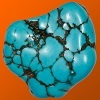
Rocks and Minerals

Structure of earth

Simple Machines
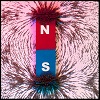
Magnets

Animal Adaptations
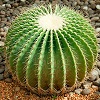
Plant Adaptations
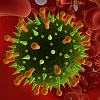
Diseases
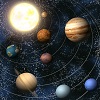
Solar System
Welcome to FunAppSchool

IPad and IPhone Apps
Educational Games for IPad and IPhone. English Grammar and Science Apps for Elementary and Middle School Kids.
Antoine Lavoisier (1743-1794)
Chemist, Father of modern chemistry
Antoine Lavoisier was a French chemist who became famous for the law of conservation, naming oxygen, studied the buring process, and introducing new categorizations of chemicals.
He was born on the 26th of August 1743 in France to a wealthy family. He lost his mother when he was five years old and inherited all the family wealth.
Lavoisier studied chemistry, astronomy, mathematics, and botany. He was expected to study law like his father but preferred chemistry from a young age.
He learned about natural sciences, geology and worked on the first geological map of France.
When he was 28 years old, he married 13 year old Marie-Anne Pierrette who became a valuable partner in his scientific journey.
Lavoisier was the first to show how oxygen influenced rust formation, and animal and plant breathing.
His research in oxygen allowed him to challenge a theory called the phlogiston theory, which said that when materials burned they released a substance called phlogiston.
He demonstrated that the process of breathing was similar to the process of burning and therefore that phlogiston was released.
Lavoisier proposed the law of conservation of matter, which showed that even though matter changed its state during a chemical reaction its quantity was the same at the end, as it was in the beginning.
He also showed that when hydrogen combined with oxygen it produced dew. This dew is was water, which is formed when two hydrogen molecules mix with oxygen.
He gave oxygen its name after his experiments showed that “air” was responsible for certain metals rusting. The special part of air that did this he named “oxygen”.
He also did many chemical experiments, which contributed a great deal to the improvement of its study.
With the help of other French chemists, he constructed a classification system for chemicals upon which the modern system of chemicals is based.
He described what an element is, that it was a simple substance that could not be broken down by any other method of chemical reaction, and came up with the theory of the formation of chemical compounds from elements, based on this research.
Lavoisier additionally studied law, following in his father’s footsteps, but because of his political views, many during those hard times in France did not like him.
He was branded a traitor and was ordered to be executed because he had fought for the freedom of many local and foreign scientists to work in France.
He was tried and convicted, and on the 8th of May 1794, he was beheaded in Paris at the age of 50.
Despite his achievements having not been appreciated back then, today, he is considered to be among the most brilliant chemists to have ever lived.
Because of all his early work and contributions to the study of chemistry, he is known as the father of modern chemistry.







